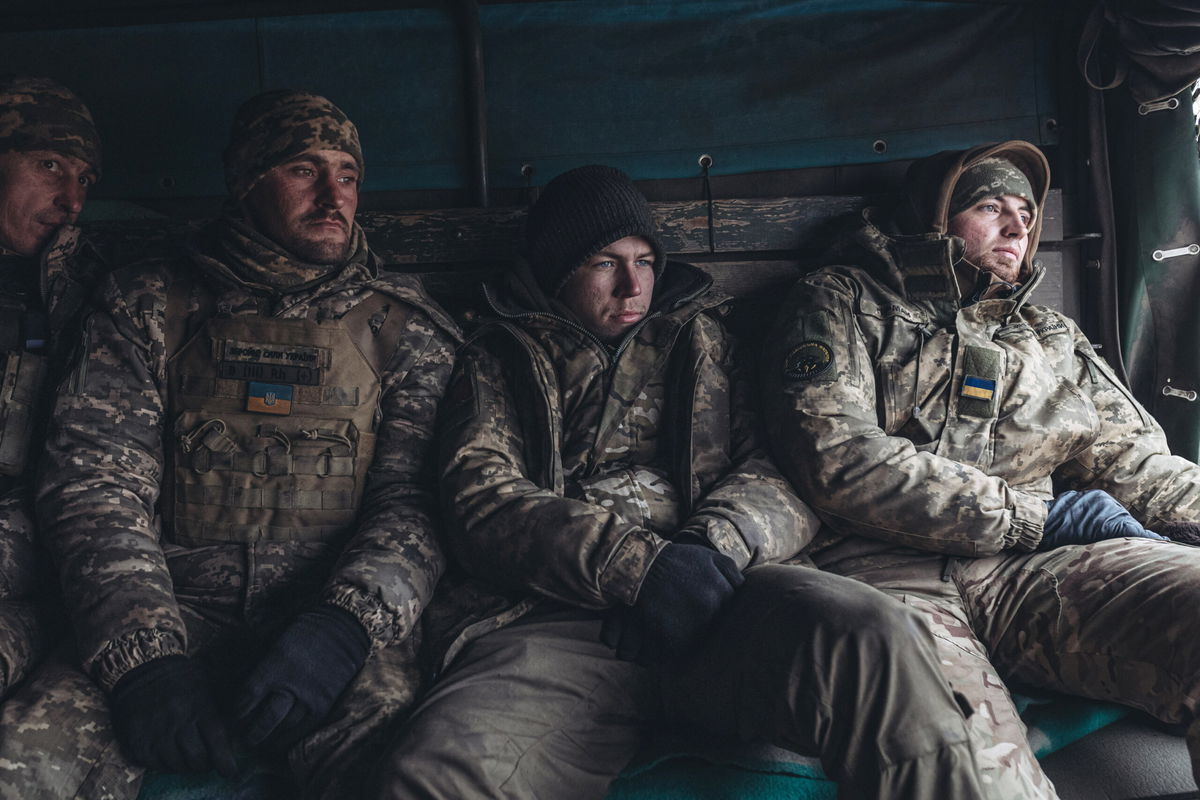Ukraine wants longer range missiles as Russia learns from its mistakes

Ukrainian soldiers work in their artillery unit in January.
By Tim Lister and Fred Pleitgen, CNN
Ukrainian officials say the Russians are learning from their battlefield mistakes and making it harder for Ukraine’s missiles to hit their ammunition depots and logistics hubs. That’s why, they say, Ukraine needs longer range missiles that can reach inside Russia.
They also believe the appointment of Gen. Valery Gerasimov as the commander of Russia’s offensive in Ukraine is a last throw of the dice by the Kremlin after multiple reshuffles of its military hierarchy.
The deputy chief of Ukraine’s Defense Intelligence, Vadym Skibitsky, told CNN Monday that the Russians have begun dispersing military supplies “across the entire territory of the Russian Federation.”
In particular, he said, “everything is moved to the southern regions through the Crimean peninsula” from logistical hubs in the Russian region of Rostov.
“If you ask what’s critical for the Russian Federation, the centers of gravity are these very hubs, and they need to be struck in order to disrupt the supply systems of all kinds,” Skibitsky said.
And this requires strikes against facilities not only in Russian-occupied Crimea, “but also in the Russian Federation,” Skibitsky said.
He described Russia’s logistics systems as lying 80 to 120 kilometers (50-75 miles) from the front line, which means Ukraine needs longer-range strike systems to target them.
Another reason for long-range artillery: multiple Ukrainian officials have told CNN that Ukraine wants to launch a counteroffensive before Russian reinforcements are equipped and ready to move. But to do that, Kyiv needs to be able to reach further.
“In order to prepare a counteroffensive or offensive operation you need to destroy many installations, not only on the front line, but also deep behind, 100-150 kilometers behind the enemy lines,” Skibitsky said.
“Especially now, to form strong strike groupings we require tanks, infantry fighting vehicles, heavy weapons that would enable quick counteroffensive operations against the enemy.”
Last summer, US-made HIMARS were highly effective in taking out such hubs in occupied parts of Ukraine’s southern Kherson region. But they would not have the range to hit Russian territory.
The Biden administration has so far been careful not to provide Ukraine with systems that can reach Russia.
Preparing for spring
Ukraine is now bracing for a brutal spring, expecting a Russian offensive aimed at completing the seizure of the Luhansk and Donetsk regions — the goal set by President Vladimir Putin for Russia’s “special military operation.”
“The Russian Federation will continue to pursue offensive action because it has failed in its primary goal: the full occupation of Donetsk and Luhansk regions,” Skibitsky said, “and it is in these territories that we foresee to be the focus of the main offensive efforts of the Russian Federation.”
He also sees a regrouping of Russian forces. “We can see that the troops that were undergoing training in Belarus are already here, in Luhansk,” he said. “So they were preparing, they created reserves, and these reserves include units of the Airborne Forces.”
The Ukrainian military’s most senior officer, Gen. Valerii Zaluzhniy, said in December that Ukraine expected a Russian offensive any time between the end of January and March.
The question remains whether the most recent reshuffle of the Russian command might delay such an offensive.
Skibitsky said that “giving all responsibility to Gerasimov is probably [Putin’s] last chance to rectify the situation and to at least partially achieve the goals” set at the beginning of the invasion.
“Right now all the resources, all the armed forces, the entire logistics system, the entire weapons manufacturing, supply and maintenance system available for the troops are in his hands,” he said.
But the Ukrainians believe Russia’s military machine is still deficient on several fronts, and expect further changes to come in its hierarchy.
“According to our assessment, this is not the final change,” Skibitsky said. “[Putin] really does have problems with the command, both at the top level, the generals, and at the bottom level of platoon or company commander.”
Rationing weapons and Wagner’s role
Skibitsky and other Ukrainian officials who have spoken with CNN say the Russians are also struggling to produce weapons in sufficient quantities, especially tanks, fighting vehicles and artillery systems. “We see very little in terms of new weaponry,” he said.
US and Ukrainian officials told CNN earlier this month that Russia’s artillery fire is down dramatically from its wartime high, in some places by as much as 75%.
They said Russia might be rationing artillery rounds due to low supplies, or it could be part of a broader reassessment of tactics in the face of successful Ukrainian counteroffensives.
The Ukrainians also appear to believe that Wagner private military contractors, which have been prominent in the assault on the eastern town of Soledar, may have peaked.
“Everything related to any success on the Donetsk and Luhansk axis is going to be attributed to the armed forces of the Russian Federation and Gerasimov,” Skibitsky said, adding that oligarch Yevgeny Prigozhin’s mercenary group was likely to play a diminished part due to internal Russian power struggles.
“The leadership of the Russian armed forces are going to try to belittle Prigozhin’s role and place however they can, so he cannot strengthen his position in the Kremlin hierarchy,” he said.
After weeks in which attention has been focused on the eastern city of Bakhmut and the Wagner presence on the battlefront, Ukrainian officials also expect the next stage of the conflict to play out over a much broader canvas.
“Wagner is no longer acting alone,” Skibitsky said. “Other reserves have been brought there, like those Airborne Troops, and other fighting brigades of the Russian Federation, therefore we can no longer talk about Wagner acting there.”
The-CNN-Wire
™ & © 2023 Cable News Network, Inc., a Warner Bros. Discovery Company. All rights reserved.